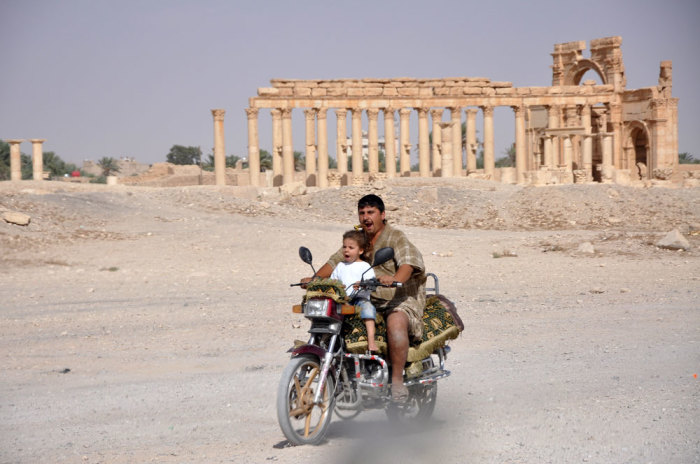UNESCO Site Palmyra Falls Into ISIS' Hands; Militants Control Half of Syria Now

Islamic State, or ISIS, militants in Syria seized the ancient city of Palmyra on May 20, expanding their hold in Syria that now encompasses half of the country.
Irina Bokova, the Director-General of UNESCO, a UN cultural agency, sent out a Tweet today exclaiming, "Palmyra tells us all cultures are linked. There's no pure culture, no point in imposing a single culture on others."
Palmyra is designated as a UNESCO World Heritage site for its cultural, trading, and geographical significance, in large part because of its well preserved Roman era ruins.
There have been no reports of destruction of ancient ruins for now, but Islamic militants have a track record of destorying ancient cultural sites that predate Islam, which they consider idolatrous.
In an interview with The Christian Post, Tim Muret, a communications officer at Open Doors, a Christian non-profit serving the persecuted Church, declared, "This certainly makes a lot of news in the states because this is a UNESCO heritage site, but the kidnappings, killings, and all the villages being destroyed usually don't make the news.
"These too have historical significance, and many of the villages are Christian," declared Muret. "We do our best as an organization to educate churches that what you see in the news is really just the tip of the iceberg."
"Palmyra is an another example of how IS has no regard for civilization or human life," said Muret.
Expanding upon the slaugther of Christians in Syria, Muret said that "before the civil war and unrest in Syria there were 1.9 million Christians or a little over 8 and a half percent of the population." The civil conflict in Syria is now going on five plus years of violence and unrest.
"The number of Christians has now dwindled down to 1.1 million or about 5 percent of the Syrian population." Muret emphasized that Christian villages and populations are essential heritage sites too, "because those populations and much of that culture is the cradle of some of the earliest Christian communities." The Apostle Paul was converted on the road to Damascus, which at the time had a rapidly expanding Christian population.
Last month, Jean-Clément Jeanbart, Archbishop of the Melkite Greek Catholic Archeparchy of Aleppo warned that Christians from Syria "could disappear."
The secular Ba'ath government controlled by Bashar Al-Assad while repressive, has traditionally shown considerable tolerance toward religious minorities, including Christians. The majority of Syrian Christians belong to Eastern Christianity, with the Greek Orthodox Church of Antioch representing the largest sect.
In an example of some of the atrocities by ISIS, the Daily Mirror is reporting that "ISIS terrorists are picking out the 'prettiest virgins' from the women they capture and sending them to their Syrian stronghold to be sex slaves, according to a UN expert." The report mentions one woman was burned alive "for refusing to perform extreme sexual acts." In a video on the Daily Mirror site ISIS fighters can be seen bartering for sex slaves.
In an interview with Atlantic Magazine this week, President Obama said, "I don't think we are losing the war against ISIS," calling the fall of Ramadi, Iraq merely a "tactical setback." The White House too called the fall of Palmyra "a setback" for U.S.-led coalition forces.



























